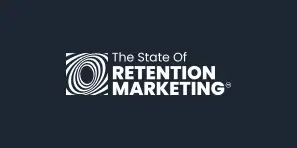What is Behavioral Triggers?
Triggers, or events, refer to all users’ actions while interacting with your mobile app, website, and campaigns. For instance, if a user clicks on your website, that’s an event.
Why are triggers important?
Triggers can bring improvement in:
- Campaign relevance and timings
- Efficiency in revenue generation
- Automating your communication
- Personalization of campaigns
- Increasing brand awareness
- Increasing sales,
Among others.
Triggers also help deeply understand buyer persona, tweak and improve current triggering events, eliminate repetition, and increase CRM value. Of the four types of triggers – event-based, behavioral, engagement-based, and business-based, behavioral triggers could be seen with events like cart checkouts, newsletter signups, opt-ins for push notifications, WhatsApp, etc.
Behavioral Triggers Defined:
Sending out automated communications in response to a user’s behavior is called a behavioral trigger. For example, if a user clicks on ‘Schedule A Demo’ on your website, it is a trigger. Post that, you need to send them an email with the next steps as a response to that trigger.
Behavioral triggers are automated. So you can focus on other important tasks rather than sending out manual communications to users. These can be automated for specific triggers that frequently occur after users click on a CTA. Some examples:
- Payment successful notification
- Complete cart transaction reminder
The first step towards a successful marketing automation strategy is understanding user behavior, which starts with understanding who the user is and then moving on to identifying their behavioral triggers. While setting up personalized use cases, a company needs to look for how users perceive the communication you send.
Behavioral triggers target users who are most likely to engage and convert by focusing on the ones who show initial interest in the product or service you’re selling. This will save you time, money, and resources when you blindly market it to a wider audience.
Let’s say you want to send emails to users who have performed a particular action or shown interest in a product/service you offer. You can also use this approach while using behavioral triggers in your marketing campaigns.
Example: Send an email to any user who has:
- Viewed a product landing page
- Opened the last email
- Clicked on the previous email
- Clicked on a CTA
- Abandoned cart
- Completed an order
Now let’s see how you can take the conversation ahead in all of these six cases:
- Viewed a product landing page: Send an email with product details+/advantages
- Opened the last email: Remind them to complete the transaction
- Clicked on the previous email: Offer a discount on the service
- Clicked on a CTA: Send limited-period discount offers
- Abandoned cart: Send limited-period discount offers
- Completed an order: Cross-sell or upsell another product
SUMMARY:
Long story short, behavioral triggers are small but significant cues that tell you that a user is likely to convert, and you shouldn’t miss out on the opportunity to engage with them before they forget about you. This is also how marketing automation comes to play because there’s a short window before the user moves on and forgets about your product. With the entire communication automated, you wouldn’t have to keep track of anything manually!



































